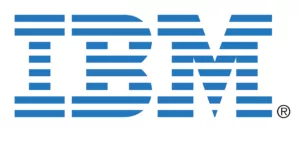Given IBM is one of the oldest tech companies in the world, there is always a concern that the company will become obsolete and age out like many of its competitors (DEC, Sun Microsystems, etc.). But its founders, particularly Thomas Watson Jr., created such a solid foundation for the company that even though it has clearly had problems in the past, it has been doing well enough recently to outperform its much younger peers.
Recent financial results showcase surprising strength in what is a problematic time with wars and the threat of more wars, a triple pandemic, and concerns about a coming recession which seem to be resulting in decisions that will assure it.
Let’s talk about some of the highlights.
IBM’s Z Systems
This is one of those things that probably deserves a “Twilight Zone” episode because I recall folks arguing compellingly that mainframes were dead back in the 1980s. That seemed a shame because, given the needs of an online enterprise, the mainframe’s sustaining advantage of massive IO and extreme security would seem instead to make it a critical product for the new age.
The results indicate that this is, in fact, the case since IBM’s Z Systems mainframes grew an impressive 16% after its latest Z16 was made available in May.
Software
IBM’s software business is historically interesting because it started out as a free feature of its mainframes which you couldn’t initially buy, only rent. In a way, when it came to hardware and software as a service, IBM not only got the concept right first, but that was also the way it initially came to market and beat competitors by around half a century or more.
It often amazes me that the market seems to come around to the way IBM did business back when I was a kid. Software grew 3%, which is still decent given the financial pressures on IBM’s large enterprise customers that are undoubtedly cutting expenses in advance of the predicted recession. And that 3% is substantially ($7.29B vs $7.12B) above market consensus from the financial analysts covering the company.
Software was where I used to report when I worked for IBM and it is always a pleasure to see my old unit outdo expectations.
Infrastructure
Infrastructure is one of the most important parts of IBM and, without it, you could argue IBM isn’t really a solutions provider so much as a product company. It, too, beat consensus, in this case by an impressive $30B. Again, the low consensus was likely due to the fact that most firms appear to be cutting costs like this but, given IBM’s criticality to operations, it appears IBM’s infrastructure services were high enough of a priority to survive the cuts.
This helped IBM, along with the other units’ performance, to outperform all other large-cap tech stocks in 2022 which has been attributed to IBM’s defensive positioning. Some firms, like Evercore ISI that follow IBM closely, indicate they expect IBM to continue to outperform its peers going forward.
Arvind Krishna and credit to IBM’s board
Often, I point to a company’s Board of Directors and argue they have no idea what they are doing to the point they cripple the companies they manage. And, often, CEOs fail in companies like IBM because they have been badly selected. Neither is the case at IBM as the board selected Arvind Krishna, someone who understood IBM’s business, could set a strategy and execute against it successfully, and who has, I think, outperformed most analyst expectations to date (though I did expect, given his background, he would do well).
IBM’s success is largely due to great leadership as well as focused and well-supported employees, which reflect well on both IBM’s board and CEO. Both, along with IBM’s rank and file, are doing what appears to be an excellent job and should get a great deal of credit for these impressive results.
Wrapping up:
In a tough time for most tech companies, IBM stood out with impressively strong performance, showcasing both a solid strategy and excellent execution. I remain very impressed that its once thought-to-be-obsolete Z System performance is so amazing because, given the current environment, it is the one technology that seems to address much of the current need of those providing online services securely at scale.
IBM is also one of the few companies that aggressively trains management, which is a generally under appreciated part of its model, significantly enhancing their ability to outperform peers this year and out-survive their peers historically.
The other aspect of IBM that is unique is the continued legacy of Thomas Watson Jr. who crafted a unique concept, “that a company should be willing to change everything but who they are.” IBM’s ethics, customer service, and security leadership will forever define who they are.








